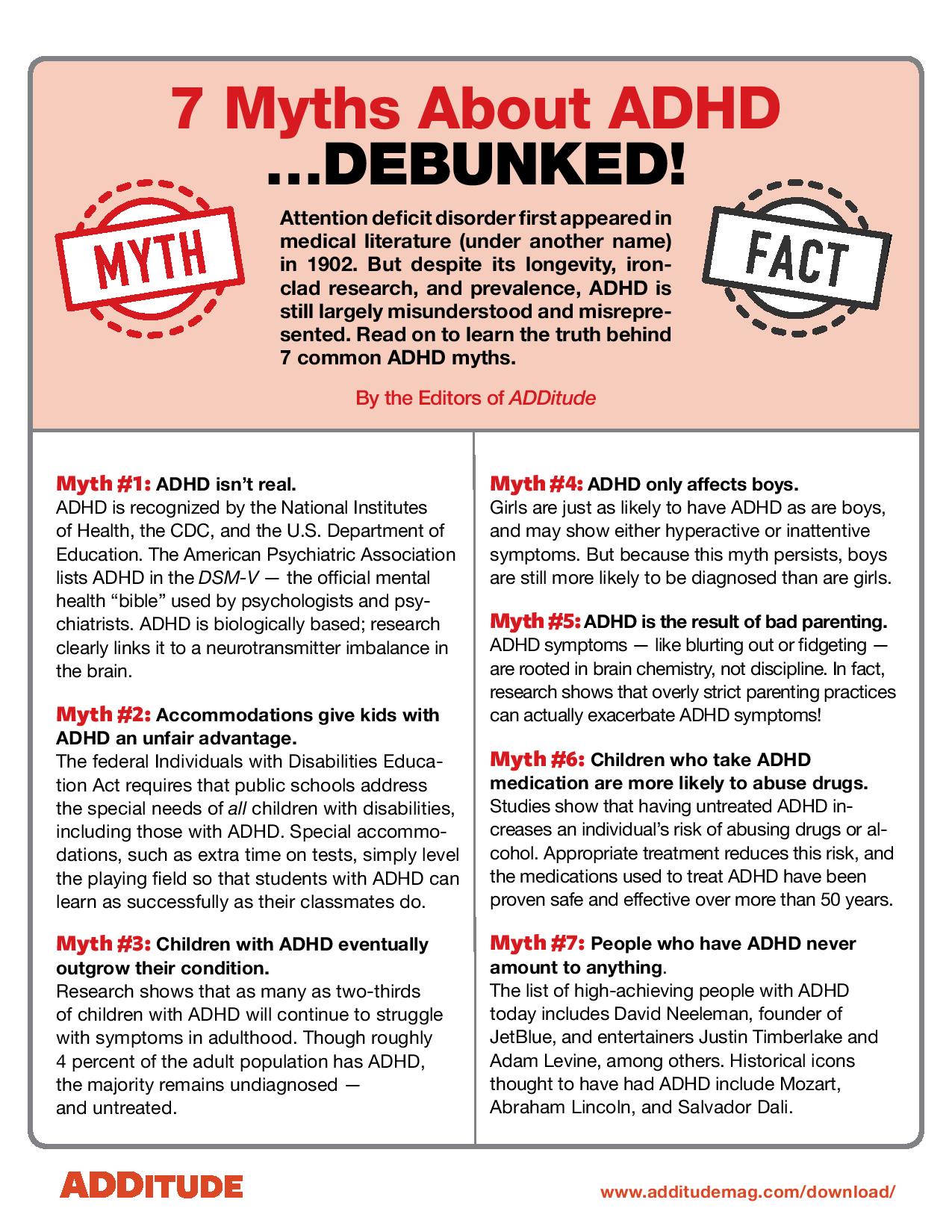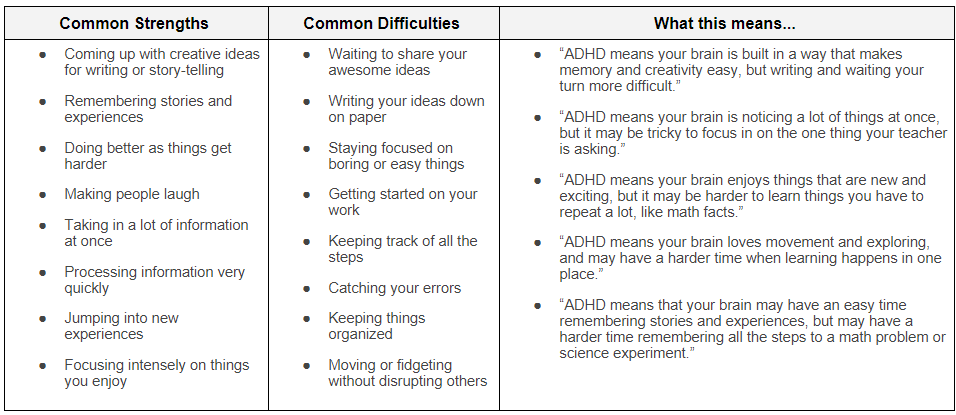Getting to know ADHD
The more we can understand what ADHD really looks like, the less likely we will be to propagate stereotypes that can be harmful to those with ADHD. For this year's ADHD Awareness Month, we want to share the facts on what ADHD is and what it is not.
From the ADDitude Directory, this graphic (below) discusses some of the most common myths about ADHD. For more fantastic resources available to download, check out ADDitude's Free Downloads page. ADDitude is a wonderful, evidence-based ADHD resource and UCEBT is also a proudly a member.
Recent ADHD Statistics
Also from the ADDitude website, learn about some of the most recent statistics regarding ADHD.
For example, did you know that 9.4% of children in the United States between ages the 2 to 17 are estimated to have been diagnosed with ADHD?
Check out the ADDitude Statistics page for more statistics regarding ADHD and:
- Prevalence in adults
- Treatments
- Related conditions
- Demographics, race & ethnicity
Common strengths and difficulties of those with ADHD
This chart was acquired from a webinar by Dr. Liz Angoff, attended by UCEBT's Assessment & Testing Program Director, Laura Rowley Ph.D., who specializes in working with people who have ADHD and Autism.
Regarding processing speed, Dr. Rowley clarifies that "processing speed is a complex ability that encompasses multiple components. Individuals with ADHD can react quickly to things, but sometimes they aren't accurate. They can also process quickly when the information is relatively simple compared to neurotypicals. So they are fast thinkers but fast isn't always better, depending on the situation". Here is a related research study, "Which components of processing speed are affected in ADHD subtypes?" https://pubmed.ncbi.nlm.nih.gov/30558479/
Neurodiversity in the Workplace
UCEBT's Assessment and Testing Program Director, Laura Rowley, Ph.D., recently presented this lecture on Neurodiversity in the Workplace: Strategies to Support Inclusivity. This presentation discusses ADHD and Autism, the strengths and barriers of each in the workplace, and how to facilitate enhanced inclusion and communication.
ADHD Evaluations
UCEBT provides comprehensive ADHD evaluations for both children and adults. Additionally, if ADHD is present and affecting academic performance, UCEBT also provides psycho-educational evaluations and works with schools on any corresponding recommendations.
An evaluation can also be helpful to rule out ADHD and determine a more accurate diagnosis. That way, individuals can receive the most appropriate treatment for their needs.
You do not need to be a client here in order to receive an evaluation. In fact, you can already be receiving treatment elsewhere and bring the results of the evaluation back to your current therapist for more fine-tuned treatment. However, if you would like to receive treatment at UCEBT, we provide that, too.
CLICK HERE to get started with an evaluation and/or treatment at UCEBT.




